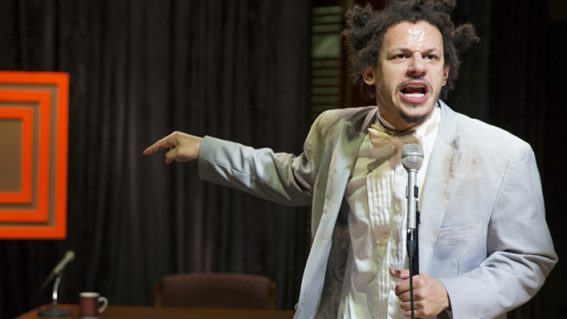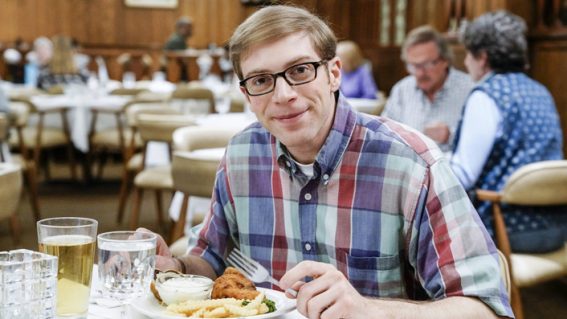Gags come thick and fast in dystopian black comedy Creamerie
Move over Fonterra, this might even end up being our biggest milk-related export of the year.
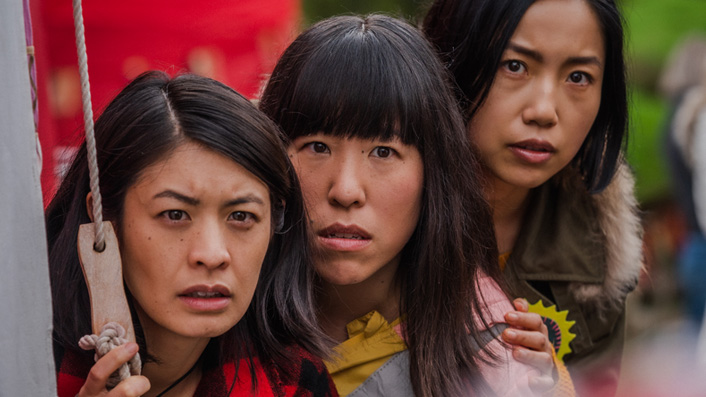
A new dystopian comedy is set in a future Aotearoa devoid of men. Creamerie comes recommended to anyone interested in an entertainingly risk-taking blend of family-unfriendly comedy and genre fare, writes Steve Newall.
Things take quite a turn in the first 60 seconds of Creamerie. In just the space of one minute, whoops of post-game victory and the odd glimpse of bare bum in a dudes’ changing room give way to bloody coughs, spews, body bags—and then eventual decontamination before a massive pile of burning bodies is revealed. All to the tune of Reb Fountain’s take on What a Wonderful World.
Have I mentioned this is a comedy yet?
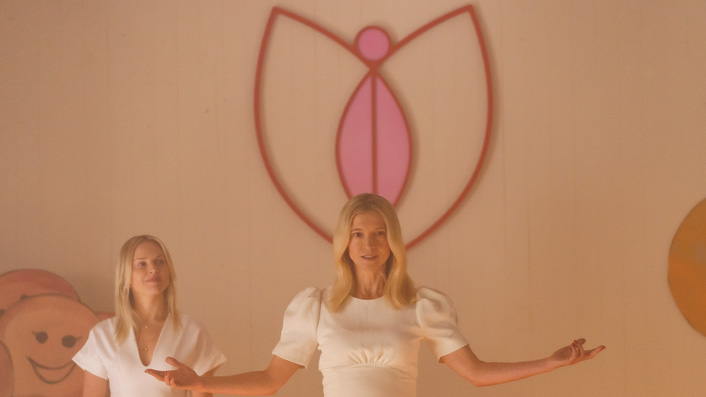
A minute later, we’ve been ushered forward eight years after a pandemic has killed all men, and introduced to the new, female-only society that’s been established. Under some striking pink anatomical iconography (new tattoo, anyone?) a choir performs a more cheerful rendition of Wonderful World.
Is this a brighter future? A happier time? When Creamerie reveals the expressions on the faces of its three leads we’re none the wiser, as they respectively suggest “fuck no” (Alex – Ally Xue) “I mean, maybe” (Jamie – JJ Fong) and “oh, yes, this is good isn’t it” (Pip – Perlina Lau).
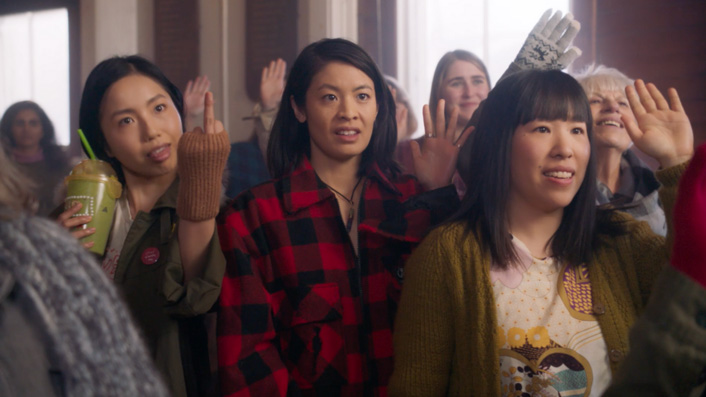
The elegant worldbuilding and show setup continues via lines like “we don’t say “guys” anymore, Jamie, it’s triggering,” and a cautious reference to “Wellness” suggesting behaviours are being policed. That’s accelerated by the introduction of charismatic cult-like leader Lane—a spectacularly cast Tandi Wright, who positively oozes insincere charm while (mostly) concealing a threatening nature.
See also:
* All new streaming movies & series
* The best comedy movies of last decade
That Lane is met with some sarcastic heckling and a hurled smoothie suggests there’s more to the community of Hiro Valley than positivity and shared ideals—and her response reveals the police state and control mechanisms lying behind the veneer of Wellness, the de facto government.
If you’re reminded of dystopian drama The Handmaid’s Tale or post-apocalyptic black comedy A Boy and his Dog you’re on the right track.
At this point, Creamerie is a mere five minutes into the first of six episodes, and as I think back on it, it’s remarkable how effectively the show has been set up. Don’t take it from me. As prolific screenwriter Kate McDermott (Shortland Street, Head High, Westside etc.) tweeted “The opening of Creamerie is one of the best openings to a new series I’ve seen”.
Subsequent minutes and episodes will mine Creamerie’s feminine future for both plenty of gags and dramatic purposes. In Friday Night Bites and Flat3 actors Xue, Fong and Lau, the show has a capable trio at its centre to flesh out their characters’ increasingly interesting personalities and backstories.
That’s a process accelerated when they encounter the unexpected—a man, whose arrival offers different potential to each of them. For Alex, he can help her rattle the cage of Lane and her controlling Wellness infrastructure; Jamie sees the potential for pregnancy after not making the cut for a state-sponsored conception lottery; and as for Pip, well, her motives might not even be clear to herself.
On first impression, Bobby (Jay Ryan) is a caricature of masculinity, everything absent from, or ironed out of, Creamerie’s setting. His presence has a destabilising effect on the women who shelter him, in shades of The Beguiled—although I don’t recall hearing the line “I don’t want to sex you. I just want your sperms, ok?” in either 2017’s Sofia Coppola film or Don Siegels’ 1971 effort. At another point, a coffee cup finds itself used in a manner probably unsanctioned by fertility professionals, evoking Chris Morris’s invitation in Brass Eye to “wake up and smell some unpleasantly milky tea”.
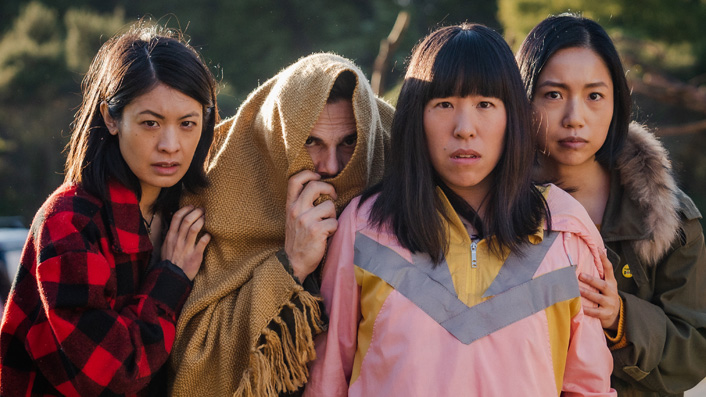
As the true nature of Hiro Valley’s regime starts to be hinted at and stakes for crossing Lane established (punishments in Hiro Valley range from five-day doses of subdermal Bliss medication to lobotomisation), a heightened tension joins gags that are now coming thick and fast.
The pairing of black comedy with a dystopian setting is one that seems to be creatively fruitful for director Roseanne Liang (who shares writing duties on all episodes), cramming the show full of humour and getting the most from a playfully committed cast that also includes Kimberley Crossman, Rachel House and Sara Wiseman.
With all six episodes available to stream, like some of the characters glimpsed at season’s end, I was glued to a screen and unable to stop. Watching all six in one sitting comes highly recommended to anyone interested in an entertainingly risk-taking blend of family-unfriendly comedy and genre fare. Move over Fonterra, this might even end up being our biggest milk-related export of the year.






